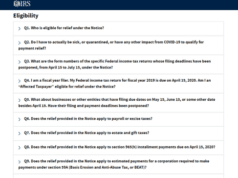
Radio hosts, the voices behind the airwaves, hold a unique and captivating role in the media world. They entertain, inform, and connect with audiences daily, creating community through soundwaves. But amidst the charisma and charm, a lingering question often arises: How much does a radio host make? In this article, we embark on a journey to uncover the financial aspects of being a radio host, exploring the factors that influence their salaries, industry benchmarks, and the perks and challenges of this esteemed profession. Whether you’re an aspiring radio host or just curious about the world behind the microphone, join us as we unveil the numbers and narratives that define the earning potential of these captivating communicators.
How much does a radio host make?
The income of a radio host can vary significantly based on factors like location, experience, and market size. In smaller markets or entry-level positions, radio hosts may earn a more modest salary, ranging from $25,000 to $50,000 annually. However, in major markets and with years of experience, top radio hosts can command salaries well into the six figures or even more, thanks to advertising deals, bonuses, and other income streams. It’s a profession where potential earnings can be as diverse as the radio stations.
Importance of understanding radio host salaries
Understanding the salaries of radio hosts holds significant importance on multiple levels, ranging from career planning to industry dynamics and even social equity. Here’s a more in-depth exploration of why comprehending radio host salaries matters:
Career Aspirations: For individuals aspiring to become radio hosts, having a clear understanding of potential earnings is crucial. It allows them to set realistic expectations and make informed decisions about their career path. It can help prospective hosts assess whether radio hosting aligns with their financial goals and lifestyle choices.
Negotiation Power: For current radio hosts, knowledge of industry salary standards is an invaluable tool during contract negotiations. With this information, hosts can advocate for fair compensation, benefits, and working conditions. Negotiation power can lead to better financial stability and job satisfaction.
Transparency: Understanding radio host salaries contributes to greater transparency within the radio broadcasting industry. Transparency fosters trust between hosts and employers, leading to healthier work environments and more equitable compensation practices.
Financial Planning: Radio hosts, like individuals in any profession, benefit from financial planning. Knowing the potential income range helps hosts budget, save, and invest wisely. It prepares them for financial ups and downs in a dynamic industry.
Disparity Recognition: Awareness of salary disparities within the radio industry is vital. Understanding the earning gaps between market sizes, demographics, and experience levels can encourage discussions about fair compensation, diversity, and inclusion. This recognition can lead to efforts to address disparities and promote equality in the field.
Career Advancement: Radio hosts with insights into salary trends can set strategic career goals. They may aim for higher-paying time slots, seek opportunities in larger markets, or explore other revenue streams within the broadcasting industry. Informed career decisions can lead to tremendous financial success.
Adapting to Industry Changes: The media landscape is continuously evolving, with shifts toward digital media and podcasting. Understanding radio host salaries helps hosts adapt to these changes by evaluating how different platforms and revenue models may impact their income potential.
Radio Host Salary Factors
Radio host salaries are influenced by various factors that can vary significantly from one host to another. Understanding these factors is essential for aspiring and current radio hosts to gauge their earning potential and negotiate fair compensation. Here are the key factors that affect radio host salaries:
Market Size and Location:
The geographic location and market size of the radio station play a crucial role in determining a radio host’s salary. Hosts working in major metropolitan areas with larger audiences and higher advertising revenue potential generally command higher salaries than those in smaller markets.
Experience and Expertise:
Experience is a significant determinant of salary. Entry-level radio hosts typically earn less than seasoned professionals with a proven track record. Moreover, hosts with specialized expertise, such as in a specific genre or format, may negotiate higher salaries due to their unique skills.
Radio Format and Show Popularity:
The format of the radio show and its popularity among listeners can significantly impact a host’s income. Hosts of popular morning or drive-time shows tend to earn more than those hosting less popular time slots. Shows with higher listener ratings often attract more advertising revenue, which can translate into higher host salaries.
Negotiation and Contract Terms:
Individual negotiation skills and contract terms influence radio host salaries. Hosts who effectively negotiate their contracts, sometimes with the assistance of agents, can secure better compensation packages. This may include bonuses, profit-sharing arrangements, and other incentives.
Demographics and Target Audience:
The demographics of a show’s target audience can also affect salaries. Hosts who connect with and engage specific demographics attractive to advertisers may see higher earnings, as advertisers are willing to pay more to reach their desired customer base.
Type of Radio Station:
Radio hosts may work for commercial or public radio stations, each with its own compensation structure. Commercial stations generate revenue through advertising, and hosts may earn a share of this revenue. Public radio hosts may have more stable salaries but rely on listener contributions and grants for funding.
Sponsorship and Endorsements:
Some radio hosts have the opportunity to secure sponsorships and endorsements, which can significantly boost their income. These arrangements often involve promoting products or services on the air and may come with additional compensation.
Industry Reputation and Awards:
A host’s reputation and any awards or accolades they’ve received can positively impact their earning potential. Highly regarded hosts may have more negotiation leverage and be considered for higher-paying opportunities.
Strategies for Aspiring Radio Hosts
Aspiring radio hosts face a competitive and dynamic industry that requires a combination of skills, dedication, and strategic planning to succeed. Here are detailed strategies for individuals looking to break into the field and build a successful career as a radio host:
Start by acquiring the necessary education and training. Consider enrolling in broadcasting, journalism, or communications programs at reputable institutions. These programs provide valuable knowledge and hands-on experience in radio production, announcing, and communication skills.
Gain experience and build a strong foundation by working at college or community radio stations, internships, or part-time positions at local radio stations. These opportunities allow you to hone your on-air skills, understand the technical aspects of radio, and make industry connections.
Develop your on-air personality, voice, and style. Successful radio hosts are authentic and relatable to their target audience. Practice speaking confidently and with enthusiasm. Find your niche and what makes you stand out in the crowded field of radio hosts.
Record a high-quality demo reel that showcases your skills and versatility. Include various segments like news reading, interviews, and hosting a show. Your demo reel is your calling card and should highlight your best work to potential employers.
Networking is crucial in the radio industry. Attend industry events, join professional associations, and connect with established radio hosts and professionals. Building a solid network can lead to mentorship opportunities, job referrals, and valuable advice.
Create an online presence through social media and personal branding. Engage with your target audience on Twitter, Instagram, and Facebook. Share content about your interests and the radio industry to demonstrate your passion and expertise.
Radio hosting requires excellent improvisation and thinking on your feet. Practice by recording mock shows or participating in radio workshops. Prepare for each show meticulously, researching topics and creating engaging content.
Pursue internships at well-known radio stations or media companies. These internships can provide valuable hands-on experience and exposure to industry professionals and potentially lead to entry-level positions.
Tips for Negotiating Radio Host Salaries
Negotiating radio host salaries can be a crucial step in securing fair compensation and advancing your career in the broadcasting industry. Here are some valuable tips to help you negotiate effectively:
- Before entering negotiations, research industry standards for radio host salaries. Understanding the typical salary range for your experience level, market size, and show format will give you a benchmark to aim for during negotiations.
- Assess your skills, experience, and accomplishments objectively. Be prepared to articulate your unique value as a radio host. Highlight your on-air performance, audience engagement, and any special skills or achievements that set you apart from others in the field.
- Determine your financial goals and salary expectations in advance. Consider your living expenses, financial obligations, and the lifestyle you desire. Having a clear target salary in mind will help you negotiate with confidence.
- Choose the right time to initiate salary negotiations. It’s often best to discuss the topic during contract renewal discussions or when you have achieved significant milestones or demonstrated your value to the station.
- Radio host compensation often includes more than just base salary. Factor in benefits such as health insurance, retirement plans, bonuses, profit-sharing, and additional perks like expense allowances, promotional opportunities, or time off.
Conclusion
The income of a radio host varies widely and depends on several factors. Market size and location, experience, show popularity, negotiation skills, and contract terms all play a significant role in determining a radio host’s salary. Entry-level hosts in smaller markets earn around $25,000 to $50,000 annually. In comparison, established hosts in larger markets can earn six-figure salaries or more, often supplemented by bonuses and incentives. Understanding these salary factors is crucial for aspiring radio hosts to set realistic expectations, negotiate effectively, and plan for a successful career in the dynamic world of radio broadcasting.
FAQ’s
Do radio hosts earn a fixed salary, or do they rely on advertising revenue?
Radio hosts often earn a fixed salary and performance-based income. In many cases, they receive a base salary and may also receive a share of advertising revenue or bonuses tied to ratings and performance.
What is the salary range for entry-level radio hosts?
Entry-level radio hosts in smaller markets or with limited experience earn between $25,000 and $50,000 annually. The specific range can vary based on location and other factors.
Can experienced radio hosts make a significant income?
Yes, experienced radio hosts, especially those in major markets or with highly rated shows, can earn substantial incomes, often exceeding six figures. Their earnings can also include bonuses and endorsements.








